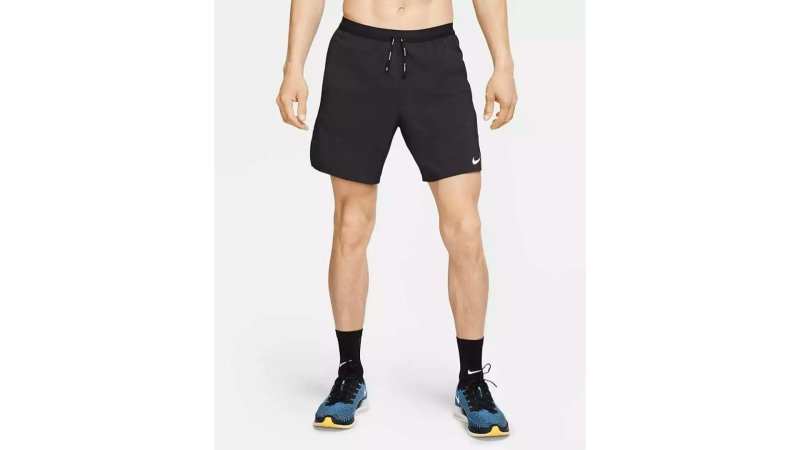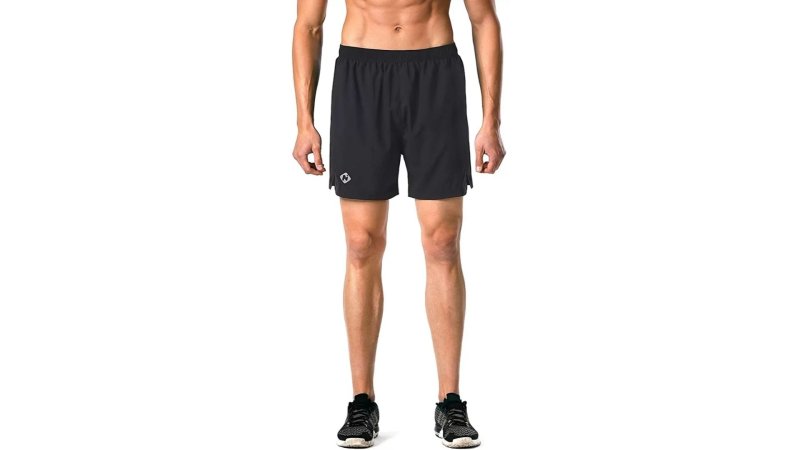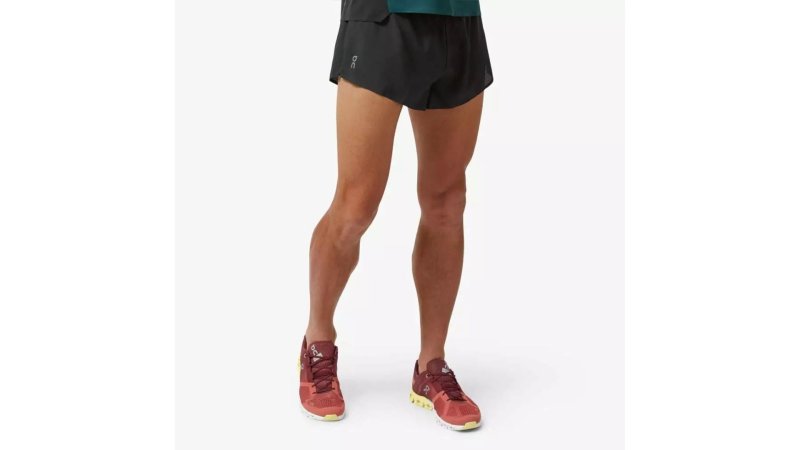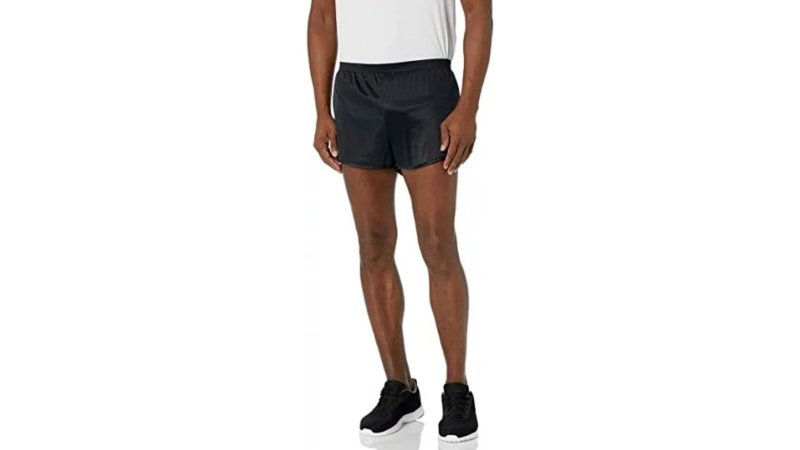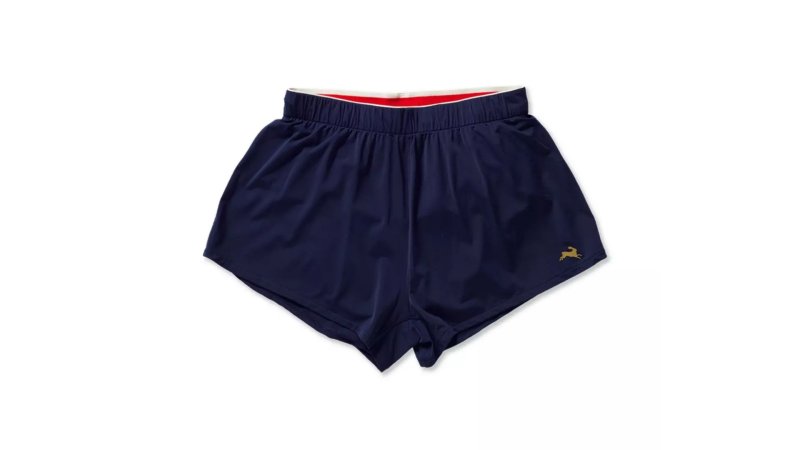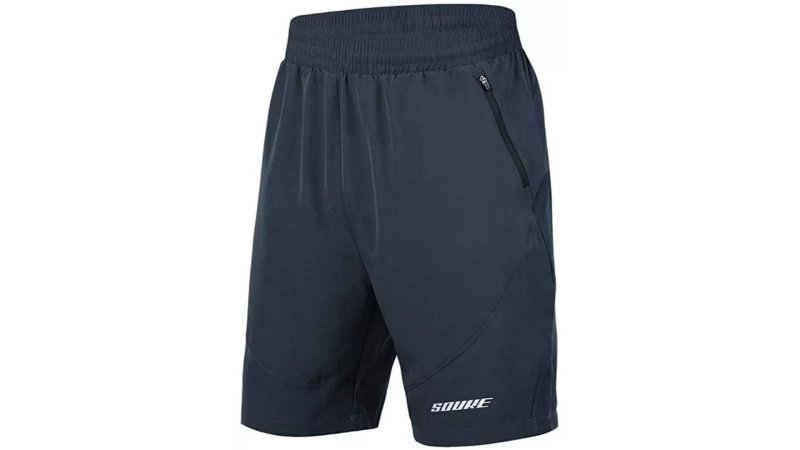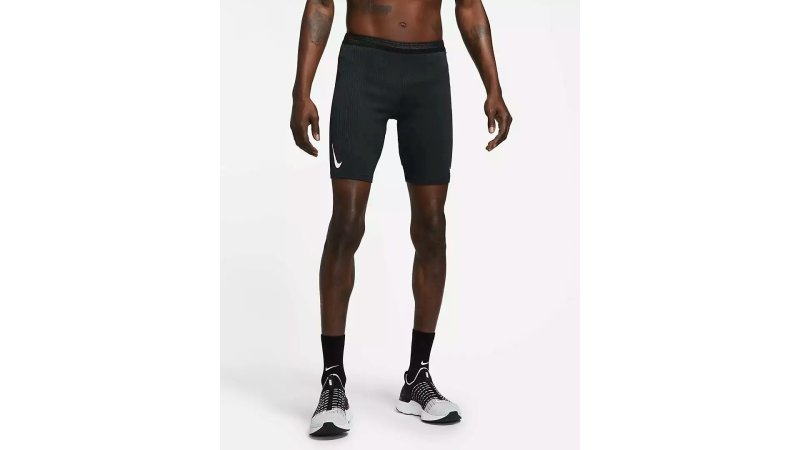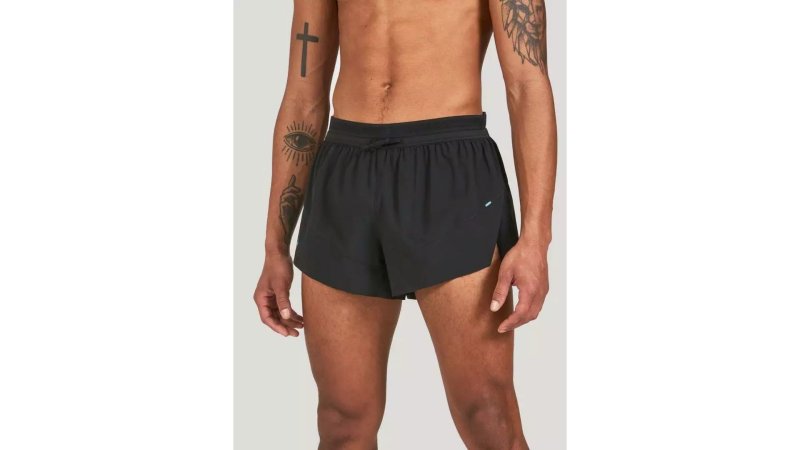

We may earn revenue from the products available on this page and participate in affiliate programs.
The new year is upon us, and if getting back in shape is one of your New Year’s resolutions, you’ll want great running shorts to make that happen. The days of just throwing on a pair of cheap shorts and lacing up your sneakers for a run are behind us. Serious runners need serious shorts. Most people understand the importance of getting the right shoes to be successful as a runner, but how many runners sell themselves short when it comes to their…uh, shorts.
Sportswear companies have taken full advantage of the latest fabrics and designs to maximize the functionality and comfort of running shorts. Even small considerations like secure pockets for mobile phones, keys, and energy gel packs have become considerations in selecting the best running shorts.
Like shoes, there are few one-size-fits-all choices in running shorts today. There are shorts designed for sprinters, for cold weather, for those who prefer longer shorts or more minimalist shorts, and for those who want shorts they can wear on the track or in the gym. This guide is intended to help you find your way through the different varieties of choices there are to make the best selection for your athletic and budgeting needs.
Best Overall
Nike Flex Stride
Pros
- Manufactured with sustainable and recycled materials
- Made with durable Nike Dri-FIT wick-away materials
- Zippered rear pocket with vapor guard to protect against sweat and moisture
Cons
- Comparatively expensive (MSRP of $55)
- Minimal reflective material built into the design of the shorts
Product Specs
- Material: Outside fabric: 100% polyester; built-in liner: polyester-spandex blend
- Size and style: Available in 5- and 7-inch inseams; V-Notch design
- Internal Liner: Compression shorts-style liner
Best Value
Naviskin Men’s 5-inch Running Shorts
Pros
- Exceptionally lightweight
- Economically priced
- Secure pockets
- Durable drawstring waistband
Cons
- Limited color and design options
Product Specs
- Material: 95% polyester and 5% spandex
- Size and style: Five-inch inseams; V-notch design
- Internal Liner: Moisture-wicking mesh inner brief style
Editor’s Pick
On Race Shorts
Pros
- Exceptionally lightweight
- Minimalist, body skimming fit
- Designed using input from elite athletes
- Perforated design for better airflow
Cons
- Expensive
- Only available in black
Product Specs
- Material: Outer: 100% Polyester / Inner: 81% Poly/19% Elastane
- Size and style: Available in 2- and 3-inch inseams; Split Short design
- Internal Liner: Minimalist, moisture-wicking inner brief style
Most Patriotic Running Shorts for Men
Soffe Ranger Panties
Pros
- Timeless retro design
- Designed by Francis Scott Key (probably)
- Worn during the raids to kill Usama bin Laden and Abu Bakir Al-Baghdadi (also probably)
- Available in American flag pattern
Cons
- There are no cons, because America
Product Specs
- Material: 100% nylon
- Size and style: 2.25” inseam; Split Short design
- Internal Liner: Minimalist
Best Hot Weather Running Shorts for Men
Tracksmith Strata Shorts
Pros
- Pockets designed specifically to hold energy gel packs
- Minimalist design for greater running mobility
- Designed by runners
Cons
- Expensive
- High-quality UVA is limited by the minimalist design of the shorts, which leave most skin exposed to the sun
Product Specs
- Material: Outside fabric: 78% Nylon, 22% Elastane; built-in liner: 85% Nylon, 15% Elastane
- Size and style: 3-inch inseam racing shorts
- Internal Liner: Wick-away swimwear material
Best Long Length Running Shorts for Men
Souke Sports Men's Running Shorts
Pros
- Side zipper pockets
- 90-day exchange policy
- Price (MSRP $23.99)
- Flatlock seams
Cons
- Sizes run small
- Manufacturer recommends line drying
- Minimal reflective elements
Product Specs
- Material: Outside fabric: 92% polyester, 8% spandex; Liner: 90% polyester, 10% spandex.
- Size and style: 8-inch inseam, compression shorts
- Internal Liner: Sewn-in boxer brief-style liner
Best Compression Running Shorts for Men
Nike Men's Core Aeroswift Half Tight
Pros
- Internal key/card pocket
- Flat waistband with internal drawstring
- Dri-FIT moisture wicking materials
- Flatlock seams
Cons
- Expensive
Product Specs
- Material: Outside fabric: 89% polyester, 11% spandex
- Size and style: 8.5-inch inseam, compression shorts
- Internal Liner: 89% polyester, 11% spandex
Best Split Running Shorts for Men
Janji AFO 3” Split Shorts for Men
Pros
- Minimalist design for greater running mobility
- 2% of proceeds go towards clean water projects in developing nations
- Bold colors and designs
Cons
- Relatively expensive
Product Specs
- Material: Outside fabric: 88% recycled polyester and 12% Elastane; built-in liner: 94% polyester and 6% spandex
- Size and style: 3-inch inseam racing shorts
- Internal Liner: Wick-away swimwear material
Why you should trust us
I have been a runner for most of my adult life, completing six marathons, a few half-marathons, and the Army 10-Miler. Over the years, I’ve learned (sometimes painfully) how important good running shorts can be when putting in miles. Much of my running career has been as a member of the U.S. Army, so I also understand the trials and tribulations of running long distances at fast paces while wearing what could most diplomatically be called not-the-absolute-best in running wear. In fact, I am old enough to remember the Army’s time using the ill-fitting gray shorts made from the same cotton material as the t-shirt.
Working as a writer doing gear reviews for Task & Purpose, I have learned to immerse myself in a combination of extensive reading of reviews by experts and customers alike, speaking with experts, and testing items myself. My goal is to ensure you walk away from reading this article with the most accurate and helpful information available so you can make smart choices in purchasing men’s running shorts for yourself or someone else.
Types of running shorts for men
There are three basic types of running shorts for men: compression shorts, V-notch shorts, and split shorts. Each serves a slightly different purpose and should be selected based on running style, personal preference, and body type. Someone prone to chafing may prefer compression shorts, whereas a very thin-legged sprinter may be more comfortable with split shorts.
Compression shorts
Compression shorts are form-fitting shorts that fit snug to the body. Traditional compression shorts provide actual compression that can improve recovery by providing support to the muscles and circulatory system. Compression-style shorts are exceptional for preventing rashes and chafing. The material is typically very flexible, which provides excellent range of motion. Compression shorts can provide better groin support.
V-notch shorts
V-notch shorts are probably the most commonly purchased and worn running shorts. They are defined by an upside-down V-shaped cutout near the outer leg hem. The V-cut allows for greater range of motion when running or doing other physical activities.
Split shorts
Similar to the V-notch style, the split shorts have an actual overlap of the front and back leg panels. Instead of the V-cut being along the hem near the bottom of the leg, the split short has a V-shape appearance caused by the overlapping halves of the material. Split shorts are typically shorter and provide the greatest range of motion. This style of short is excellent for sprinters.
Key features of running shorts for men
There are no hard rules for what makes a good pair of running shorts for men. Like choosing a great wine, the ultimate rule is to decide what works for you and what doesn’t. Key considerations are length, material, fit, durability, and the quality, location, and number of pockets. I have never personally liked running in the more Daisy Duke-esque cut of running shorts. It isn’t that I am shy about showing legs, but simply a comfort thing. I am also a ginger who lives in Florida, so extended sun exposure can be my enemy.
Length
The length of men’s running shorts is by and large a matter of personal comfort and preference. Some men are more prone to chafing and may want a longer pair of shorts, while others want to be as free as possible of material constraining them as they run. Sometimes external factors may play into it, such as modest rules set forth by the facility in which you work out. Length can also affect the number and style of pockets available in the shorts.
Fabric
Most running shorts available today are made from synthetic materials, usually a polyester and spandex blend. Many of the major manufacturers have their own proprietary materials such as Nike Dri-FIT, New Balance’s NB Dry, and Brooks’ DriLayer. For me to speak to the specifics of each fabric would involve researching a separate article, but they generally serve the same purposes: to wick away moisture from your body, provide enough breathability to keep you cool and comfortable, and to remain durable. Some shorts are made with materials that include a level of anti-microbial protection, which can help minimize bacteria from sweating and reduce or eliminate funky odors which can build up over time. Funk is literally the only thing that gives cotton an advantage over synthetic materials. Pretty much everyone agrees: Just avoid cotton unless you’re a fan of heavy, wet, clingy fabrics when you run.
Benefits of running shorts for men
The days of “shorts are shorts” are behind us. There are legitimate benefits to utilizing shorts designed specifically for running, including increased performance, better support, and range of motion. The design of modern running shorts incorporate specialized fabrics and designs to allow runners the highest levels of performance, comfort, and recovery. Different styles and designs of running shorts are available to allow athletes of every fitness level, running style, and body type to choose the most suitable shorts for their needs.
Comfort
For most of us, running is an inherently uncomfortable activity, even when you enjoy running. Longer runs, especially in hotter and more humid locations like my home state of Florida, can add to that discomfort by layering in heat and humidity. The materials used to make running shorts today are designed to wick moisture away from the body, thus improving your comfort and reducing chafing. Trust me, I speak from painful experience when I say it only takes a little chafing to ruin a run.
Performance
My first and only triathlon was largely a spur-of-the-moment thing. Some friends from my running club were racing and invited me to participate. I didn’t have a road bike, so in lieu of shelling out hundreds of dollars to buy one, I foolishly opted to use my mountain bike. I completed the race, but it goes without saying the biking leg was pretty miserable compared to my swim and run.
It seems obvious you can’t do a triathlon with a mountain bike. It should be equally obvious you probably shouldn’t run in basketball shorts or golf shorts. The latter two are exceptional for their respective activities, but not for running. Good men’s running shorts are designed with the cuts and materials to maximize your performance.
Look
Like any sport, you probably want to look cool. Good running shorts can help ensure no matter how fast or slow you are or how much or little distance you can cover, you look damn cool doing it.
Pricing for running shorts for men
Luckily, running shorts for men have a fairly moderate range of pricing. The highest-priced shorts on our list is almost $70 while the low end is in the $20 range or less.
Budget
Budget shorts are just that — budget. You aren’t getting all the cool-guy elements like higher quality materials and reflective strips and whatever else the engineers invent, but you’re definitely getting something with a decent price tag of around $20. It is important, however, to make the distinction between budget and cheap: Just because you’re getting basic shorts with a low price doesn’t mean you’re not getting something high quality. The best example on this list would be the Soffe Ranger Panties, which are very basic and bring nothing fancy to the table but will last for years.
Mid-range
Mid-range shorts ride the line somewhere between budget and premium shorts, between $20 and $70. The mid-range shorts tend towards slightly better quality than the budget shorts, but without the professional grade qualities (and price tags) found in the premium shorts. You’re essentially getting the best of both worlds with quality shorts at a fair price. As a consumer and an athlete, the best thing you can do when choosing mid-range shorts is figure out what you need and don’t need and select accordingly.
Premium
Premium shorts are the best of the best, usually costing more than $70. Nike commonly falls in this category, as do Tracksmith. With premium shorts, you are going to find a variety of different features which mostly relate to the material used. Some will use material that has integrated UV protection (a particularly important quality for those of us of the ginger persuasion), anti-microbial materials to minimize smells, and higher quality materials that will last longer and maintain their shape. You will pay more money for premium, but the adage of “you get what you pay for comes” certainly comes into play here.
How we chose our top picks
To write this buying guide, I looked into many of the top-rated running shorts and researched them until I settled on the ones that offered the highest performance and seemed best suited for our readers. I specifically looked at the materials used to make the shorts, the different styles and lengths of the shorts, and the features built into the shorts, such as pockets and reflective materials.
FAQs on running shorts for men
You’ve got questions, Task & Purpose has answers.
Q: Should running shorts be tight or loose?
A: This is largely a personal choice. Unless you’re Pietro Maximoff, you aren’t going to run fast enough for your shorts to affect your aerodynamics and speed, so go with what works best for you.
Q: How does the length of men’s running shorts affect performance?
A: This depends on the type of running you are doing and the level of performance you can bring to the table. For sprinting, for example, you may want to avoid the longer shorts with five- to seven-inch inseams. The added material can bunch up and get in the way. On the other hand, you might want to avoid two-inch inseam split shorts for a long trail run.
Q: What’s the best material for a pair of men’s running shorts?
A: The best material for men’s running shorts is a synthetic fabric like polyester. Cotton is the enemy. Cotton is great for a cool shirt with your favorite band or sports team, but for running shorts, you would just be inviting sweat, humidity, and moisture to join you and ruin your day. Stick with something that wicks the moisture away from your body and has enough breathability to allow air to flow.
Q: Should I look for a pair of men’s running shorts with a liner?
A: Running shorts with a quality liner are great because they limit the layers of clothing you need when running, but not all liners are created equal. A good liner provides comfortable support and can help mitigate chafing. Liners do, however, have a tendency to stretch and wear out over time. If this happens, you can simply cut the offending liner out and replace it with a pair of quality underwear.
Our gear section
Paul O’Leary is an Army veteran and tactical nerd. He’s served multiple tours in Atropia and other theaters and once ate a Norwegian reindeer MRE. He fancies himself a connoisseur of good bourbon, wine, and cigars. He also writes for Duffel Blog.
